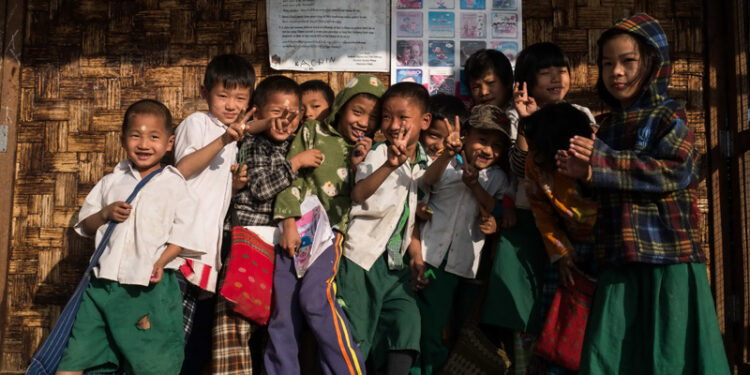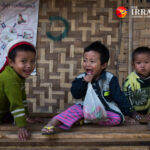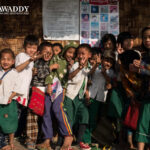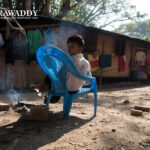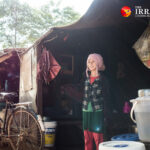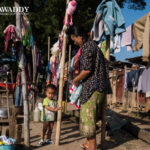BHAMO, Kachin State — “I want a school bag,” said nine-year-old Naw Mai with a shy smile when asked what he wanted from Santa Claus this year.
Alongside more than 3,000 other internally displaced persons (IDPs), Naw Mai will pass another Christmas in Bhamo Township’s Robert Church compound in southern Kachin State.
“He always says he wants a Kachin bag because he feels ashamed to go to school with the backpack that UNICEF gave him,” explained his mother Htam Hkawn, pointing to an old blue-colored backpack emblazoned with the UN Children Fund’s logo.
“But we can’t afford to buy him a new bag,” she added.
The Irrawaddy visited the church compound this week which began hosting IDPs since a 17-year ceasefire between the government and the Kachin Independence Army (KIA) broke down in mid-2011. Since February this year, the church was forced to stop accepting newly displaced persons as it was stretched to capacity.
Christmas has been a subdued affair for thousands of displaced families—Naw Mai’s family among them—in Kachin State over the past four years, with many separated from their loved ones and unable to return home.
According to the United Nations Office for the Coordination of Humanitarian Affairs (OCHA), around 100,000 people remain displaced in Kachin and northern Shan states. The UN body said 1 million people are in need of humanitarian aid throughout the country and cited a significant shortfall in aid funding for 2015.
Around 1,000 children aged between 3 to 12 years old live in the Robert Church compound, according to camp manager Aung Mai. Some of them go to a school set up in the camp, at high-school and pre-school levels, run by volunteer teachers.
Since the camp was opened, teachers have made an effort to mark Dec. 25 in some way each year.
“We celebrate Christmas just as a symbol now because we feel guilty to be happy,” said Nang Zing La Ja, a program officer with Zinlum, a sub-committee of the Bhamo District Kachin Baptist Convention (KBC).
The Zinlum committee has been working together with INGOs and UN organizations to provide humanitarian aid to IDP camps in remote areas of Kachin State.
“However, after Christmas day passes, they feel the burden of daily living and [the struggles] of their families again,” he said. “When we put ourselves in their shoes, we can feel that they are not happy. Not at all.”
Nang Zing La Ja said he wanted to celebrate Christmas this year, especially for the children—to ease their worries if only for a short while. But there were little funds to hold a special event, he added, as donors only prioritized supplies for daily living.
“Now Christmas has become meaningless for them,” he said.
Htan Ra, a 36-year-old volunteer pre-school teacher in the camp, and an IDP herself, told The Irrawaddy that a small celebration for displaced children was held on Dec. 21, with teachers providing presents with their own money.
At this time of year, she said, she missed her old friends.
“I feel sad. It’s not our home so we can’t meet our old friends like we used to. Even if we can celebrate Christmas here, we have our own sufferings. Happiness lasts only one day,” she said.
“I wish for no more conflict and wars in the coming 2016 so that we can go back home. We are really hungry for peace now. This is the present we all want most for Christmas,” she said.
Htam Hkawn, the 48-year-old mother of Naw Mai, said it was difficult to be excited for another Christmas spent away from home.
“Our whole village used to celebrate it together. I miss it so much that I don’t even want to talk about it,” she said.
When The Irrawaddy left the camp on Wednesday, it was around 3 pm, the time when school classes finish.
Children flooded out of classrooms, sporting blue-colored UNICEF backpacks or other school bags; some wearing school uniforms, others not. Some children clutched colorful balloons in their hands that their teachers had given them in an attempt at Christmas cheer.
For 14-year-old N’Hkum Hkawn Shawng, Christmas is just a normal day. Like Htam Hkawn, her Christmas wish is full of nostalgic longing.
“I want to study with my childhood friends in my native place again,” she said.


